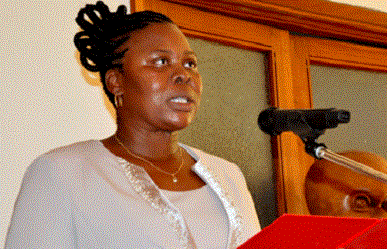Marcelina sells molina in the streets, Estefania took up sewing: How they made it after graduating ...
Mozambican government says new media fees take market into account

Emilia Moiane. File photo: SAPO
The director of the Mozambican Information Office defended that the introduction of fees was a response to market circumstances and the need to impose discipline in the sector.
The director of the Mozambican Information Office (Gabinfo) said on Friday that the introduction of media licensing and accreditation of journalists fees took the market and the need to discipline the sector into account. Press freedom organisations and journalists however have criticised the introduction by the Mozambican government of fees they consider exorbitant for the exercise of the activity in the country.
In an interview published on Friday by Savana, Emily Moiane, the director of Gabinfo, a governmental entity that licenses the press in Mozambique, said that the introduction of fees was a response to market circumstances and the need to impose discipline in the sector.
“Looking at the media market, which is an industry and, like all sectors of activity of our country, should contribute to the coffers of the State,” Moiane said. Moiane pointed out that after the approval of the Press Law in 1991, the Government approved a decree that provided for the introduction of media fees, but the document was not implemented due to the winding up of the Ministry of Information and the fact that the Gabinfo does not have powers for this function.
“We have been evolving, and in 2015 we revised our organic statute, which introduces revenue collection,” she added. The introduction of the fees, she said, was preceded by a market study showing the amounts approved by the government to be realistic. “For example, from our studies, we concluded that to open a television station, the investor would need at least 60 million meticais, so surely he could find three million meticais for a license,” she said.
Emilia Moiane said that Gabinfo also consulted the CSCS, the sector’s governing body on the new fees. Asked by Savana, the president of the CSCS, Tomás Vieira Mario, denied that the institution was consulted as required by the legislation.
Under the new fees, which enter into force this month, a foreign correspondent will have to pay 500,000 meticais (EUR 7,469) to work in Mozambique, and an equal amount for the renewal of accreditation.
Decree 40/2018, of July 23, published in the Government Gazette, also requires the payment of 200,000 thousand meticais (EUR 2,985 Euros) for the accreditation of national correspondents of foreign media – also renewable.
Foreign freelancers will pay 150,000 meticais (EUR 2,239) for accreditation and renewal and national freelancers, 30,000 meticais (EUR 447).












Leave a Reply
Be the First to Comment!
You must be logged in to post a comment.
You must be logged in to post a comment.